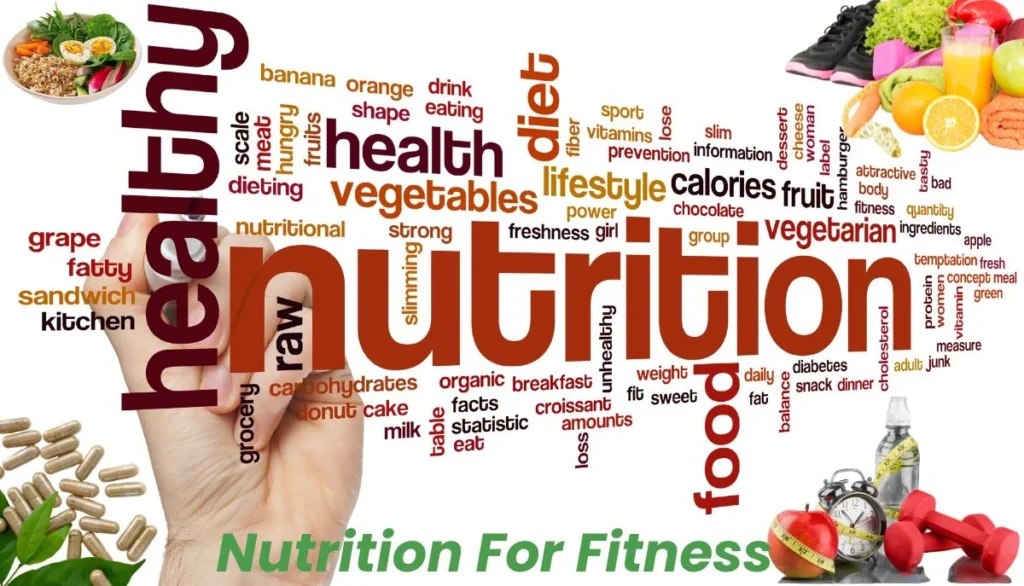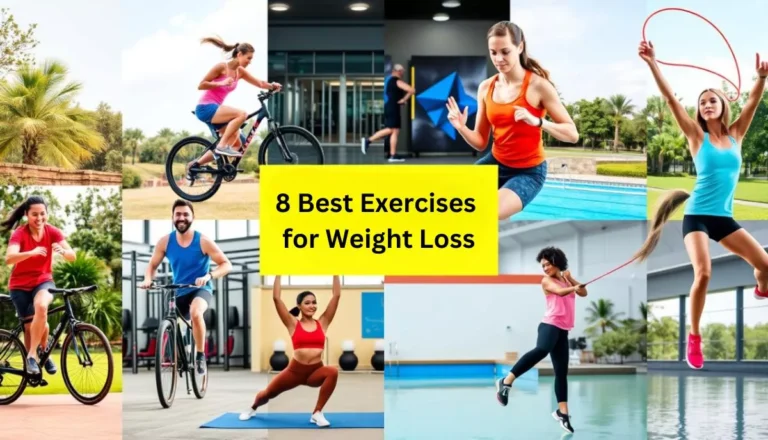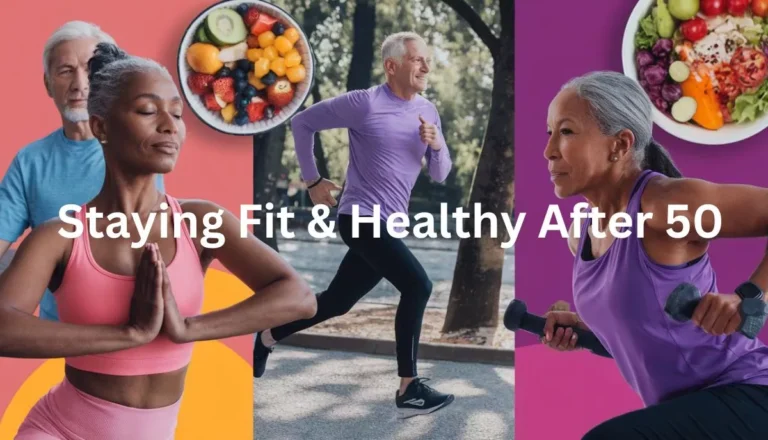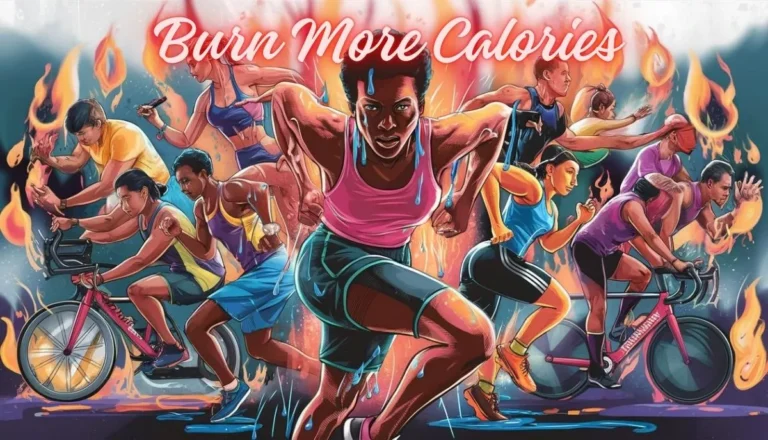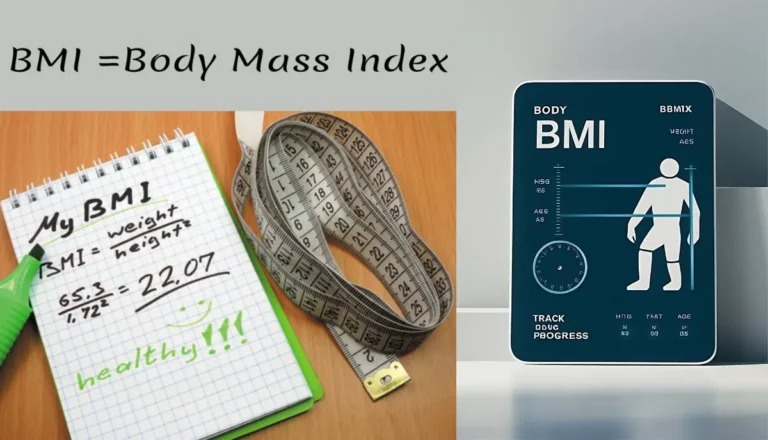Fitness lovers, it’s time to boost your workouts! In 2024, the right nutrition for fitness is key to reaching your fitness dreams. This guide will show you how to use food to fuel your body and hit peak performance.
Did you know that the right mix of exercise and nutrition can boost your immune system? It can even help you live longer and healthier. By focusing on both, you’re setting yourself up for success.
Whether you want to build muscle, lose fat, or boost endurance, what you eat matters. Good nutrition affects your energy, strength, and performance. It’s not just about working out harder; it’s about working out smarter with the right fuel.
In this guide, we’ll cover the basics of nutrition for fitness, clear up common myths, and share meal planning tips. Get ready to change how you eat and take your fitness journey to new levels!
Key Takeaways
- – Balanced nutrition is essential for optimal fitness performance
- – Proper protein intake supports muscle repair and growth
- – Carbohydrates can improve workout endurance
- – Nutrition plays a key role in weight management and fat loss
- – Hydration is crucial for overall health and fitness goals
- – Good nutrition helps prevent chronic diseases
- – Portion control is important for maintaining a healthy weight
Understanding the Basics of Nutrition for Fitness
Understanding the basics of nutrition is key to reaching your fitness goals. Your body needs the right balance of nutrients to perform well and recover after exercise.
This includes macronutrients. They are carbohydrates for energy, proteins for muscle repair, and fats for health. Micronutrients, like vitamins and minerals, are vital. They help produce energy and keep your body strong.
By eating a balanced diet, you can fuel your workouts, improve recovery, and stay on track with your fitness goals. Understanding the basics of nutrition is key to reaching your fitness goals. Your body needs the right balance of nutrients to perform well and recover after exercise.
This includes macronutrients. They are carbohydrates for energy, proteins for muscle repair, and fats for health. Micronutrients, like vitamins and minerals, are vital. They help produce energy and keep your body strong.
By eating a balanced diet, you can fuel your workouts, improve recovery, and stay on track with your fitness goals.
What are macronutrients and why are they important?
Macronutrients are essential. Your body needs them in large amounts for energy and health. They include carbohydrates, proteins, and fats.
Carbohydrates provide quick energy. Proteins are vital for muscle repair and immunity. Fats support brain health, hormone production, and cell growth. A proper balance of macronutrients is vital.
It maintains energy, supports metabolism and promotes well-being. Understanding macronutrients can help improve your diet and optimize your health.
| Macronutrient | Function | Sources |
|---|---|---|
| Carbohydrates | Primary energy source | Grains, fruits, vegetables |
| Proteins | Muscle repair and growth | Meat, eggs, legumes |
| Fats | Hormone production, nutrient absorption | Nuts, seeds, oils |
The role of micronutrients in supporting your fitness goals
Micronutrients, like vitamins and minerals, are vital. They help you reach your fitness goals. They help your body produce energy, repair muscles, and boost your immune system.
For example, vitamins B and D help your body turn food into energy. Minerals like calcium and magnesium are important for strong bones and muscles. Getting enough micronutrients is essential for anyone wanting to stay fit. They can improve workout performance, speed up recovery, and maintain health.
Balancing your plate: The ideal ratios for different fitness objectives
Let’s dive into the art of plate balancing! 🍽️💪
Ditch the one-size-fits-all approach. Your plate should match your unique fitness goals. If you aim to build muscle, consider your plate a protein party with complex carbs as the energetic sidekick.
Aim for 30-35% protein, 45-50% carbs, and 20-25% healthy fats. Bulking up? Crank those carbs up to 55-60% for that extra energy boost. If fat loss is your game, flip the script a bit. Lower those carbs to about 30-35%, keep protein high at 30-35%, and let healthy fats take up 30-35% of your plate.
For our endurance warriors, carbs are king – we’re talking 55-65% of your plate, with protein at 20-25% and fats at 15-20%. Remember, these aren’t set-in-stone rules, but rather guidelines to experiment with. Listen to your body, track your progress, and don’t be afraid to tweak things.
The perfect balance fuels your workouts, supports your goals, and makes you feel great. Now go forth and create your masterpiece – your plate is your canvas! 🎨🥗
Debunking common nutrition myths in the fitness world
Many nutrition myths in the fitness world can be misleading. A common myth is that cutting all carbs will help you lose weight.
But, your body needs healthy carbs for energy. Another myth is that eating fat makes you fat. Healthy fats are vital for brain function and health. People also think you need lots of protein to build muscle, but too much protein can be harmful.
Knowing the facts can help you make better food choices. It can also help you reach your fitness goals safely.
Fueling Your Workouts: Pre-Exercise Nutrition Strategies
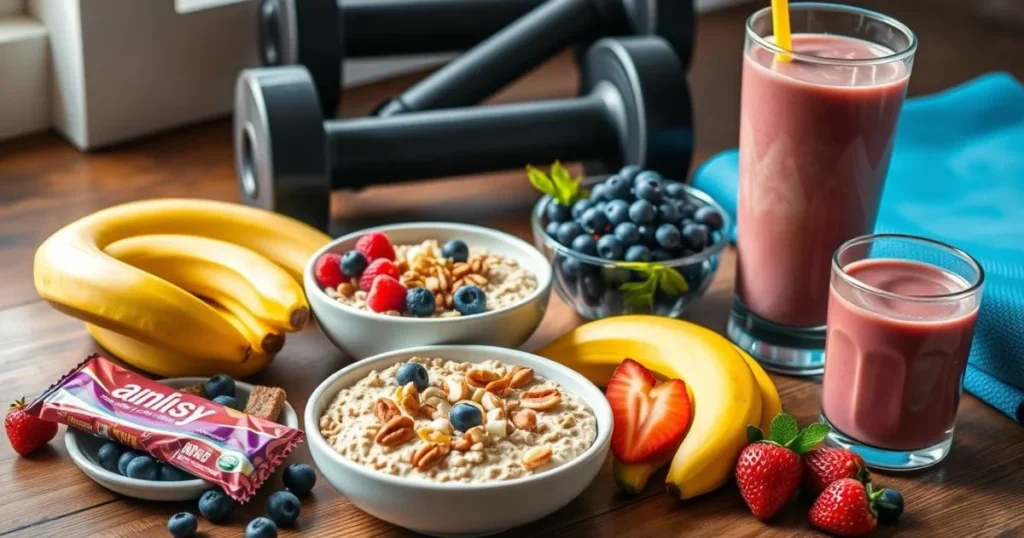
Getting the right food before working out is key to better fitness. Eating at the right time boosts your energy and workout quality.
Timing your pre-workout meals for optimal energy
Timing your pre-workout meals is important for getting the best energy during exercise. Eating about 1 to 3 hours before a workout can give your body the fuel it needs to perform well.
A balanced meal with carbohydrates for energy and a little protein for muscle support is ideal. If you’re short on time, a light snack like a banana or yogurt 30 minutes before can also help. Proper meal timing can boost your endurance and help you feel stronger during workouts, leading to better results.
Best pre-workout snacks for different types of exercise
Choosing the right pre-workout snack depends on the type of exercise you’re doing. For cardio workouts like running or cycling, a banana or oatmeal can give you quick energy.
If you’re doing strength training, try a snack with protein and carbs, like Greek yogurt with fruit, to support muscle building.
For yoga or lighter activities, a small snack like an apple or a handful of nuts is a good option. A good pre-workout snack fuels your body. It boosts your performance, depending on the exercise type.
| Exercise Type | Recommended Snack | Timing |
|---|---|---|
| Endurance | Whole grain toast with banana | 2 hours before |
| Strength Training | Greek yogurt with berries | 1 hour before |
| High-Intensity Interval | Apple with almond butter | 30 minutes before |
The debate on fasted cardio: Pros and cons
The debate on fasted cardio is about its effectiveness for fat loss. It involves doing cardio on an empty stomach, usually in the morning before eating. Some say it is better than doing cardio after eating. Here are some key points from both sides of the debate:
Pros of Fasted Cardio
- Some studies suggest that fasted cardio can boost fat burning. It may help your body burn more fat for energy when glycogen is low.
- Simplicity: It’s straightforward. Just wake up and start your workout. No need for pre-workout meals.
Cons of Fasted Cardio
- Potential Muscle Loss: Exercising without fuel might lead to muscle breakdown, as the body might use muscle protein for energy.
- Decreased Performance: Some may struggle to perform their best without food. This could lower the workout’s overall effectiveness.
Scientific Evidence
- The effectiveness of fasted cardio is still debated. Some research supports increased fat burning, while others show minimal impact on overall body mass.
- Personal preference and individual response play significant roles. What works for one person might not work for another.
Ultimately, whether fasted cardio is beneficial depends on your specific goals and how your body responds. Have you tried fasted cardio before, or are you considering giving it a go?
Hydration tips to maximize your performance
Staying hydrated is crucial for fitness. Drink enough water to keep urine slightly yellow. For intense workouts, consider electrolyte balance. Proper hydration supports metabolic rate and helps regulate body temperature during exercise.
“Proper pre-workout nutrition and hydration can significantly enhance your athletic performance and recovery.”
Post-Workout Nutrition: Recover Like a Pro
Proper nutrition after working out is key for muscle recovery and better performance. Let’s look at the facts behind effective recovery and the right time to eat.
The Anabolic Window: Fact or Fiction?
The anabolic window is a key post-workout time for nutrient intake. It’s been a hot topic in fitness circles for years. But is it fact or fiction? Well, it’s a bit of both! The idea of a 30-minute window after exercise isn’t entirely accurate.
But, there is some truth to it. Your body is primed for nutrient absorption then. Research suggests your body optimally partitions nutrients for hours after a workout. The International Society of Sports Nutrition (ISSN) says eating within 2 hours is best.
So, you don’t need to rush to chug a protein shake the second you finish your last rep. But, eating a balanced meal with protein and carbs within a few hours of your workout can help muscle recovery and growth.
The key takeaway? Don’t stress about a strict time limit. But, prioritize post-workout nutrition in your fitness plan.
Protein Intake: How Much Do You Really Need?
Protein intake: the eternal question for fitness enthusiasts! But how much do you really need? Well, it’s not one-size-fits-all, folks! While the average person might get by with 0.8g per kg of body weight, if you’re hitting the gym regularly, you’ll want to bump that up.
Most studies suggest that 1.6-2.2g per kg of body weight is the sweet spot for muscle building and recovery. But here’s the kicker – more isn’t always better! Excessive protein intake doesn’t magically translate to bigger muscles.
Your body can only use so much, and the rest is just expensive bathroom trips. 😉 The key is consistency and timing. Spread your intake throughout the day, and don’t forget that post-workout shake or meal.
Remember, while protein is crucial, it’s just one piece of the puzzle. Balance is key in nutrition for fitness success!
Carb Replenishment Strategies for Endurance Athletes
Listen up, endurance athletes! 🏃♀️🚴♂️ Carb replenishment isn’t just about scarfing down pasta – it’s an art and a science. Your glycogen stores are your body’s turbo fuel. After a long session, they’re as empty as your water bottle.
The golden rule? Aim for 1-1.2g of carbs per kg of body weight within the first hour post-exercise. But here’s the cool part: your body is like a sponge for 24-48 hours after intense endurance work.
Take advantage of this “window of opportunity” by continuing to load up on complex carbs. Think whole grains, sweet potatoes, and fruits. And don’t forget about timing! For those epic events lasting over 90 minutes, mid-exercise fueling is crucial. Gels, sports drinks, or even a good old banana can be your secret weapon.
Remember, every athlete is unique, so experiment during training to find your carb-loading sweet spot. Fuel smart, and you’ll be flying past that finish line!
The Importance of Electrolytes in Post-Workout Recovery
Electrolytes are crucial for muscle function and hydration. The National Athletic Trainers’ Association suggests drinking 500-600 ml of water 2-3 hours before exercise. Drink 200-300 ml 10-20 minutes before working out. After, replenish lost electrolytes to aid in recovery.
| Nutrient | Recommended Intake | Timing | Benefits |
|---|---|---|---|
| Protein | 20-40g | Every 3-4 hours | Muscle recovery, performance |
| Carbohydrates | 0.4g per pound of body weight | Within 4 hours post-workout | Glycogen replenishment |
| Water | 500-600 ml | 2-3 hours pre-workout | Hydration, performance |
Post-workout nutrition isn’t just about protein shakes. Whole foods like smoothies, low-fat chocolate milk, or yogurt with berries offer a balanced mix of nutrients. By focusing on the right timing and balanced intake, you can improve your recovery and reach your fitness goals.
Tailoring Your Nutrition Plan to Your Fitness Goals

Your nutrition plan should match your fitness goals. Whether you want to build muscle, lose fat, or boost endurance, your diet is key. It helps you reach your goals.
Nutrition for Muscle Gain
Nutrition plays a key role in muscle gain. To build muscle, your body needs enough protein to repair and grow muscles. It also needs carbs for energy and healthy fats for overall health.
Eating protein-rich foods like chicken, fish, eggs, and beans can help support muscle growth. It’s also important to eat enough calories to fuel your workouts and recovery.
Drinking plenty of water and getting vitamins and minerals from fruits and vegetables will keep your body strong and healthy. A balanced diet is essential for gaining muscle and reaching your fitness goals.
Eating for Fat Loss
Eating for fat loss is about choosing the right foods and portions to help your body burn fat while staying healthy. Eat whole foods like fruits, vegetables, lean proteins, and whole grains. They keep you full and provide important nutrients.
Avoid processed foods high in sugar and unhealthy fats. Eating balanced meals with proteins, healthy fats, and fiber can boost your metabolism. It can help you lose fat over time. Also, control your portion sizes.
Drinking plenty of water and staying active are also important for supporting fat loss and overall health. Some people find success with intermittent fasting for fat loss.
Fueling for Endurance Sports
Fueling your body properly is key for success in endurance sports like running, cycling, or swimming.
To maintain energy during long workouts, eat carb-rich foods. Pasta, rice, and fruits will fuel your body to keep going. Including some protein, like lean meats or nuts, helps with muscle recovery.
Hydration is also crucial, so drink plenty of water before, during, and after your workout. Balanced meals and snacks can boost your endurance and performance. They also help you recover faster after intense exercise.
Vegetarian and Vegan Fitness Nutrition
Vegetarian and vegan fitness nutrition aims to get the right nutrients from plant-based foods. This supports your workouts.
Protein is important for muscle repair, and you can get it from sources like beans, lentils, tofu, and quinoa. For energy, eat plenty of whole grains, fruits, and vegetables. Healthy fats from avocados, nuts, and seeds are also essential.
Make sure to get enough vitamins and minerals, like iron and B12, which are sometimes harder to find in plant-based diets. Eating a balanced vegan or vegetarian diet can give you the energy and nutrients you need for fitness success.
The most important thing is to be consistent and listen to your body. Adjust your plan as needed.
Supplements in Fitness Nutrition: Separating Fact from Fiction
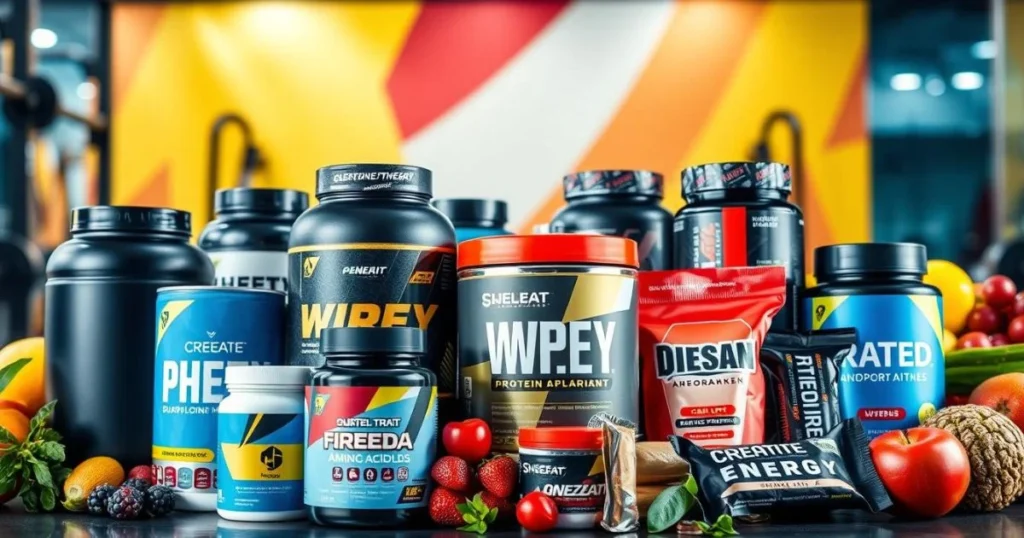
The world of sports supplements can be confusing. With so many options, it’s hard to know what works and what’s just hype. Let’s dive into the facts about fitness nutrition supplements and how they can support your goals.
Essential Supplements for Fitness Enthusiasts
When it comes to essential supplements for fitness enthusiasts, think of them as your workout sidekicks, not magic pills. First up, the all-star: protein powder. It’s like a fast track to recovery, especially when you’re too busy (or tired) for a full meal. 💪💊
Creatine is another heavy hitter – it’s backed by mountains of research for boosting strength and muscle gains. Don’t forget about fish oil; those omega-3s are anti-inflammatory superheroes.
For the vitamin squad, D3 is crucial, especially if you’re not soaking up much sun. And let’s hear it for the underdog: magnesium, the miracle mineral for muscle function and sleep quality. But here’s the kicker – no supplement can outwork a bad diet or poor training. They’re the cherry on top of your fitness sundae, not the whole dessert.
Always check with a doctor before starting any new supplement regimen. Remember, the best supplement is the one that fills the gaps in your specific nutrition needs. Now go crush that workout! 🏋️♀️🥇
The Truth About Protein Powders: Do You Really Need Them?
Protein powders – the fitness world’s favorite debate topic! But do you really need them? Here’s the scoop: they’re not essential, but they can be darn convenient. Think of them as a fast-food option for your muscles (but way healthier!).
If you’re crushing intense workouts or trying to build muscle, getting enough protein from whole foods can feel like a full-time job. That’s where powders swoop in to save the day! They’re quick, and easy, and can help you hit your protein goals without feeling like you’re constantly chewing.
But here’s the kicker – they’re not magic muscle dust. A chicken breast or a bowl of lentils can do the same job. The real MVP is consistency in your overall protein intake. So, if you’re struggling to meet your protein needs or always on the go, protein powders can be a game-changer.
But if you’re already nailing your nutrition with whole foods, you’re not missing out. Remember, the best protein is the one you’ll consume regularly. Whether it comes in a shaker bottle or on a plate, just make sure you’re feeding those gains! 💪🥩🥛
Pre-Workout Supplements: Boost or Bust?
Pre-workout supplements: the Jekyll and Hyde of the fitness world. Are they a supernatural boost or just expensive pixie dust? Here’s the caffeinated truth: when used right, they can be your secret weapon for crushing workouts.
Most pre-workouts are a mix of caffeine, amino acids, and stimulants. They aim to give you an “I can conquer the world” feeling. And let’s be honest, sometimes that extra oomph is what gets you off the couch and into beast mode! But here’s the catch – they’re not all created equal, and more isn’t always better.
Some can leave you feeling jittery, itchy (thanks, beta-alanine!), or crashing harder than a failed bench press. Plus, your body can build up a tolerance faster than you can say “one more rep.” The key? Use them strategically, not as a crutch. Start with half doses, cycle on and off, and remember – the best pre-workout is often a banana and a strong mindset.
If you do go the supplement route, do your homework and choose quality over crazy claims. Now go smash that workout – pre-workout or not, the real magic happens when you show up and put in the work! 🏋️♀️🚀
Natural Alternatives to Popular Fitness Supplements
Fed up with the supplement aisle confusion? I hear you. While protein powder and creatine have their place, Mother Nature may have better solutions.
For that extra energy boost, skip the synthetic pre-workouts and reach for a cup of coffee or green tea. The caffeine and L-theanine combo will have you laser-focused without the jitters. Looking to enhance recovery?
Tart cherry juice is a natural anti-inflammatory powerhouse. And don’t forget about good ol’ turmeric – the curcumin in this spice is a potent pain reliever. Struggling to catch some Zs? Valerian root and magnesium supplements can work wonders for sleep quality.
The best part? These natural alternatives often come with additional health benefits beyond just fitness. So, before you reach for the neon-colored tubs, consider going back to the roots – your body (and wallet) will thank you! 🌱💤
| Supplement | Recommended Dosage | Benefits |
|---|---|---|
| Creatine | 20g/day for 5 days, then 3g/day | Increases strength and power |
| BCAAs | 5-10g before or during workout | Reduces muscle fatigue |
| Probiotics for athletes | 1-10 billion CFU daily | Supports gut health and immunity |
While supplements can support your fitness journey, they’re not magic pills. A balanced diet rich in whole foods should be your foundation. Always consult a healthcare professional before starting any new supplement regimen.
Meal Planning and Prep for Fitness Success
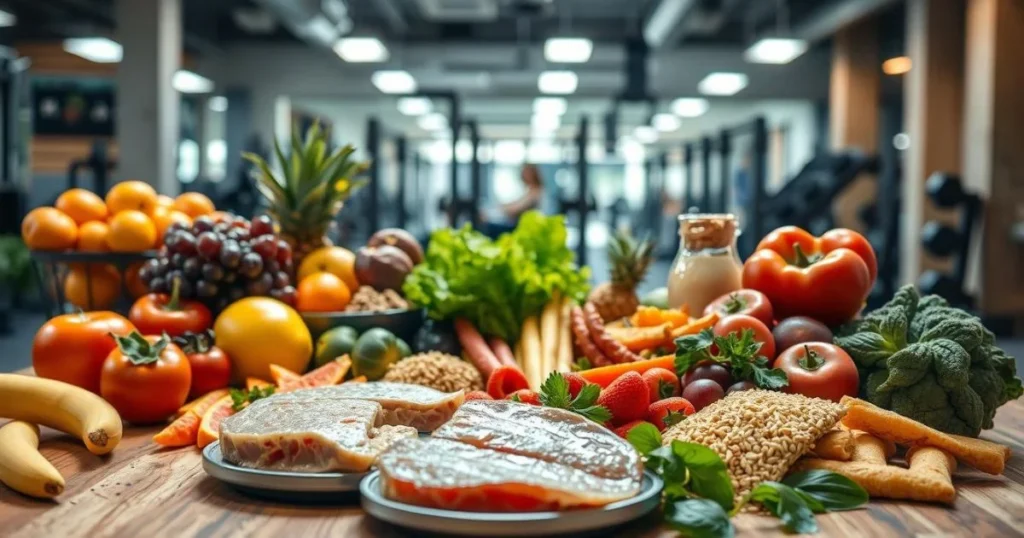
Meal planning and prep are key for athletes wanting to fuel their bodies right. A good meal plan gives you the nutrients you need to reach your fitness goals. Let’s explore some easy ways to make meal planning a part of your routine.
Creating a Sustainable Meal Plan
Ah, the holy grail of fitness – the sustainable meal plan! Listen up, friends, because this is the key to making nutrition work for the long haul.
Gone are the days of restrictive diets and unsustainable “hacks.” The secret to a meal plan that sticks? Flexibility and balance. Start by assessing your lifestyle, schedule, and food preferences. There’s no one-size-fits-all approach here.
Next, create a framework. It should include the foods you love and the nutritious staples your body craves. Remember, sustainability is all about making small, gradual changes that you can actually maintain.
Replace processed snacks with whole food options. Plan your meals ahead. And, don’t be afraid to treat yourself sometimes. The goal is progress, not perfection. With creativity and self-compassion, you’ll make tasty, healthy meals.
They’ll fuel your workouts and satisfy your taste buds. Consistency is key, so find an approach that aligns with your unique needs and preferences. Your future self will thank you!
Time-Saving Meal Prep Strategies
Batch cooking is a big help for those with busy schedules. Cook big batches of grains, proteins, or veggies on weekends. Use these throughout the week.
Try overnight oats or egg muffins for quick breakfasts. Mason jar salads or lentil soup are great for lunch. For dinner, baked salmon with roasted veggies or turkey chili are good choices. These strategies save time and help you eat whole foods.
Healthy Snack Ideas
Alright, snack enthusiasts, let’s dive into some healthy and delicious options to keep you fueled throughout the day! 🍎🥜
Snacking can be a fitness game-changer, but only if you choose the right fuel. Ditch the processed, sugary snacks. Choose whole food options with more nutrients.
Some of our top picks include fresh fruit with a serving of nuts or nut butter, Greek yogurt with berries, and veggie sticks with hummus. For a heartier snack, try hard-boiled eggs, a protein-packed smoothie, or a handful of trail mix.
The key is to combine lean protein, complex carbs, and healthy fats to keep your energy levels steady and your taste buds satisfied. And don’t forget about the power of simplicity – sometimes all you need is an apple or a few slices of turkey.
Remember, snacks are meant to tide you over, not replace meals, so keep portions reasonable. With a bit of prep, you can have healthy snacks ready. They’ll help you resist those tempting but unhealthy vending machine treats. Snack smart, my friends, and power through your day with ease!
Reading Food Labels
Ah, the secret language of food labels – it’s time to become a master decoder, my friends! 🔍🧠
Those little nutrition facts panels can feel like hieroglyphics. But, trust me, they’re a game-changer for your fitness journey. First up, keep an eye on the serving size – that number determines everything else on the label.
Next, focus on the big three: calories, fat, and carbs. But don’t just look at the totals – dig deeper into the specifics. Is that fat coming from healthy unsaturated sources or artery-clogging saturated ones? Are those carbs mostly sugar or complex, fiber-rich goodness?
And let’s not forget protein – the more the merrier, especially if you’re trying to build or maintain muscle. Watch out for sneaky added sugars, sodium, and other additives. They can sabotage your health goals.
With a little practice, you’ll be reading those labels like a pro, making smart choices that fuel your body and taste amazing. Remember, knowledge is power when it comes to nourishing yourself the right way. So, grab that magnifying glass and get to work, fitness warriors!
Conclusion:
Whew! We’ve covered a lot of ground, haven’t we? You now know how to fuel your body like a pro. You learned the basics of nutrition for fitness. You also learned to tailor your diet to your goals. Remember, nutrition isn’t just about eating – it’s about nourishing your body to perform at its best. So, the next time you hit the gym, think about how you’re feeling that amazing machine of yours!
Ready to put this knowledge into action? Start by making one small change to your nutrition plan this week. Maybe it’s adding a protein-rich snack after your workout or experimenting with a new pre-workout meal. Whatever you choose, know that you’re taking a step towards becoming the fittest, healthiest version of yourself. Now go out there and crush those fitness goals! You’ve got this! 💪🥗🏋️♀️
Frequently Asked Questions
Q: What is the importance of a balanced diet for fitness and exercise?
A: A balanced diet is crucial for fitness and exercise as it provides the necessary nutrients to fuel your workouts and support recovery. It helps maintain energy levels, build and repair muscles, and improve overall performance. The Mayo Clinic says a balanced diet is vital. It should include carbs, proteins, healthy fats, fruits, and vegetables. Also, hydrate properly. This will keep your body at its best during exercise.
Q: How should I plan my eating and exercise routine to maximize my workouts?
A: To maximize your workouts, plan your eating and exercise routine carefully. Eat a nutritious meal containing carbohydrates and lean protein 2-3 hours before exercising. For shorter notice, have a light snack 30-60 minutes prior. After your workout, refuel with a combination of protein and carbohydrates within 30 minutes to aid recovery. Hydrate before, during, and after exercise. Adjust your food choices and timing based on the intensity and duration of your exercise routine.
Q: What role do carbohydrates play in fitness nutrition?
A: Carbohydrates are essential in fitness nutrition as they are the body’s primary source of energy. They fuel your muscles during exercise, especially during high-intensity workouts. Whole grains, fruits, and vegetables have complex carbs. They provide lasting energy and help with digestion. The Academy of Nutrition and Dietetics recommends that 45-65% of your daily calories come from carbs. This will support an active lifestyle and boost your workouts.
Q: How much water should I drink to stay properly hydrated during exercise?
A: Proper hydration is crucial for exercise performance and overall health. Drink 17-20 ounces of water 2-3 hours before exercise. Then, drink 8 ounces 20-30 minutes before. Finally, drink 7-10 ounces every 10-20 minutes during exercise. For workouts lasting over an hour or in hot conditions, consider sports drinks to replenish electrolytes. The Mayo Clinic Health System recommends drinking 16-24 ounces of fluid for every pound lost during exercise. This will help you refuel and rehydrate.
Q: What are some healthy fats I should include in my diet for fitness?
A: Healthy fats are an important part of a nutritious diet for fitness. Include sources such as avocados, nuts, seeds, olive oil, fatty fish (like salmon), and chia seeds. These fats provide essential fatty acids, help with nutrient absorption, and support heart health. Harvard Health recommends that 20-35% of your daily calories come from healthy fats. Adding these to your meals and snacks can boost your energy and fitness.
Q: How can I ensure I’m eating nutritious meals to support my fitness goals?
A: To eat nutritious meals that support your fitness goals, focus on whole, unprocessed foods. Include a variety of colorful fruits and vegetables, lean proteins, whole grains, and healthy fats in your diet. Plan your meals and snacks to avoid unhealthy food choices. The Department of Health recommends the plate method. Half your plate should be vegetables, a quarter lean protein, and a quarter whole grains. This approach helps ensure you’re getting a balance of nutrients to fuel your workouts and support your overall health.
Q: What are some tips to maximize my workouts through nutrition?
A: To boost your workouts with nutrition, follow these tips: 1) Eat a pre-workout meal high in complex carbs and lean protein. 2) Stay hydrated before, during, and after exercise. 3) Consume a post-workout snack with protein and carbs within 30 minutes of finishing. 4) Include antioxidant-rich foods in your diet to aid recovery. 5) Don’t skip meals, especially breakfast. 6) Time your meals around your workouts for optimal energy. 7) Consider supplements like protein powder or BCAAs if needed, but prioritize whole foods. 8) Listen to your body and adjust your intake based on hunger and energy levels.
Q: How should I adjust my eating habits if I’m trying to lose weight while maintaining an exercise routine?
A: If you want to lose weight while exercising, create a moderate calorie deficit. But, fuel your workouts. Increase your intake of low-calorie, nutrient-dense foods like fruits and vegetables. Choose lean proteins and complex carbohydrates to keep you satiated. Pay attention to portion sizes and use smaller plates. Don’t drastically cut calories, as this can hinder your workout performance and metabolism. Aim for a gradual weight loss of 1-2 pounds per week. Consult a registered dietitian or your healthcare provider. They can help create a weight loss and exercise plan that meets your body’s needs.
Source Links
- – Nutrition for Fitness Guide: Fueling Your Body for Optimal Performance
- – NIH MedlinePlus Magazine
- – Food as Fuel Before, During and After Workouts
- – What Should I Eat before Exercise? Pre-Exercise Nutrition and the Response to Endurance Exercise
- – Post-Workout Nutrition
- – Nutritional Compounds to Improve Post-Exercise Recovery
- – The Beginner’s Guide to Meal Prepping – Muscle & Fitness

